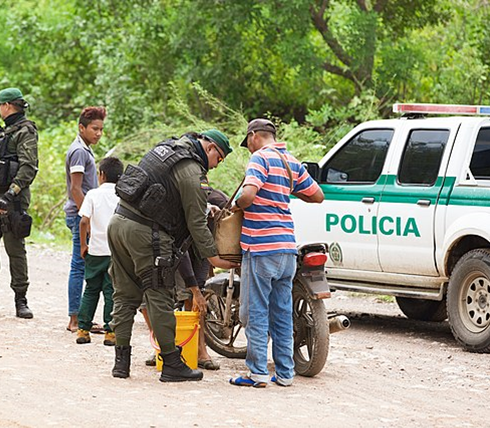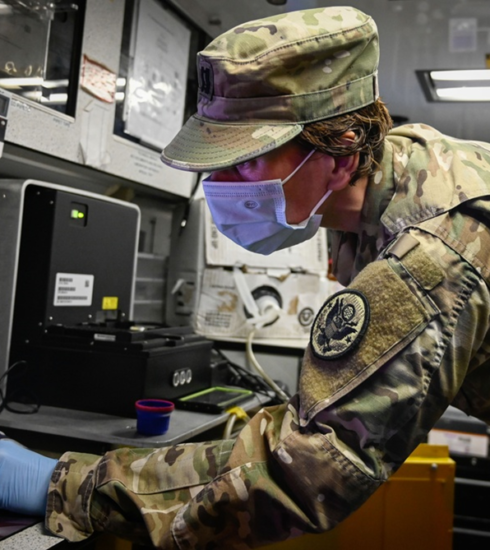Hundreds of refugees Missing on the Belarus-Lithuania Border
Introduction
A
s the Russia-Ukraine conflict floods news stations across the globe, many pressing situations persist in eastern European nations. One notable conflict lies on the border between Lithuania and Belarus. This relatively new conflict is caused by heightened migration rates from Belarus into Lithuania, due to humanitarian concerns in Belarus. The world is certainly no stranger to refugee migration crises. Once bodies were discovered on the border and reports of missing friends and family arose, with no acknowledgement from the Lithuanian government, the crisis took a very dark tone. With tensions between these countries on the rise, their potential future is bleak.
Alexander Lukashenko: Europe’s Only Dictator
Hundreds are fleeing Belarus because of the repressive control of its president Alexander Lukashenko. Ruling Belarus for 29 years, Lukashenko has progressively sacrificed humanitarian values in favor of popular control. Lukashenko, dubbed “Putin’s little brother,” is considered to be the only current European dictator. [1] His choke hold on the Belarusian people has, in recent years, led to the imprisonment of any individual who speaks negatively concerning the state. [2] Ultimately, Lukashenka’s relationship with his people is abusive.
To fulfill his dictatorial intent, Lukashenko has enlisted the services of the police. The Belarusian KGB, the Russian KGB spin-off, has proved to be particularly helpful in aiding Lukashenko’s repressive regime. [3] Scores of Belarusian citizens have been arrested for speaking against officers. [4] The Belarusian KGB has not only acted in retaliation, but they have actively raided houses and college apartments and arrested individuals with zero notice, striking fear into the population. [5] Understandably, there is a heavy desire to leave such a country led by a totalitarian police force.
Belarus and Lithuania
Hundreds of these refugees flee to Lithuania. Lithuania, unlike Belarus, is in the UN. To Lithuanian citizens, this means heightened consumer protection, workplace safety, regional convergence, and protection of rights. [6] These benefits come at an indirect cost to Lithuanian citizens, as their average cost of living is 28.7% higher than their Belarusian counterparts. [7] Evidently, however, the question of whether the trade-off is worth it has not been difficult to answer for many Belarusian refugees.
This tension is furthered by progressing unrest between Belarus and Lithuania. The situation seemed positive for Belarus and Lithuania after the signing of a cross-border cooperation agreement on 1 June 2006. This pact allowed for border conflicts and emergencies to be resolved quicker, as citizen information was more willingly shared between the respective border patrols. Within the previous few years, as Belarusians have had less and less freedom and no capability to speak about it, tensions between Belarus and her neighboring countries have grown tremendously. [8] In an expected yet harrowing development, these increasing hostilities led to the cross-border cooperation agreement being severed on 18 January 2023. [9] With the one last hope of peace for the border crumbled, Belarusians have fled to Lithuania not only for its prospects, but also out of fear of what might happen if they were to stay.
In fleeing Belarus, however, refugees face the heavy anti-refugee sentiment held by the Lithuanian military. This sentiment is dramatically worsened by the pre-existing tension between Lithuania and Belarus. Lithuanian officials may also be wary of accepting Belarusian refugees in fear that it may cause an armed conflict. [10] Because of this, as well as the threat refugees pose to the Lithuanian economy, Lithuania entered a state of emergency in July 2021. [11] This statement was followed by the building of a barbed wire fence bordering Belarus, which was completed in the Summer of 2022. Ultimately, however, many Belarusians have fought through these obstacles in an attempt to gain freedom.
Although bodies have been found, the vast majority of these missing persons cases remain unresolved.
Missing Refugees
The situation was made more confusing once Belarusian refugees began to go missing on the border. Grupa Siena, a leading humanitarian organization researching the border crisis, has received dozens of missing-person reports. Although bodies have been found, the vast majority of these missing-person cases remain unresolved. Vakarė, a volunteer working for Grupa Siena, spoke saying, ”Every single day I get a message about a new missing person…We don’t have answers for these people. We don’t have bodies. We don’t have their stories.” [12] Despite the number of missing migrants being in the hundreds, the immediate cause remains a mystery. As with any mystery shrouded in conflict, accusations are inevitable.
One of the first accusations was made by Lithuania, accusing Belarus of weaponizing migrants. The accusations suggest that Belarus is intentionally pushing refugees into Lithuania to weaken it. The weaponization of migrants is certainly not a new form of warfare, as it has proven effective against many European countries. Not only does it strike at a nation’s economy and security, but it also provides a logistical distraction. [13] Through weakening those who disagree with his rule, Lukashenko would be able to prolong his dictatorship.
Belarus, in retaliation, has accused Lithuania of framing Belarus by dumping bodies on the border. This accusation, coming directly from Lukashenko, was sparked once a handful of bodies were found on both Belarusian and Lithuanian soil. [14] The individuals most likely died from the harsh winter and minimal sustenance, all in an attempt to cross the border. Lukashenko’s argument comes from the perspective that the Lithuanian state wishes to vindicate itself. The accusations remain heavy on both sides because there are very few reliable facts that have been released to the public.
Recommendation
America’s position in this situation is limited, as any armed conflict with Belarus almost certainly means armed conflict with Russia. The best recommendation is to simply keep a watchful eye on the rising tensions. As mentioned earlier, such conflicts become drowned out in news and investigations due to the Ukraine conflict. American news sites are minimally concerned about Belarus/Lithuania, in comparison to Ukraine. The U.S. Government must take this conflict into consideration when offering support to Ukraine.
The border crisis between Lithuania and Belarus is best described as convoluted. What has been made clear, however, is that many Belarusian citizens are fleeing their country and are going missing in the attempt. The sobering thought is that this tension seems to be leading towards armed conflict between Belarus and Lithuania which, as Lithuania is an EU member and Belarus is a sister-country to Russia, could be disastrous. These rising tensions are out of America’s reach. The best route for America to take is to keep a watchful eye and be wary of who it tactically supports.
Sources
[1] ”Alexander Lukashenko: Europe’s Last Dictator.” The Week UK, 20 December 2022, https://www.msn.com/en-us/news/world/alexander-lukashenko-europe-s-last-dictator/ar-AA15udUN
[2] Irina Reznik, Evgenia Pismennaya, “Russia Considers Life After Lukashenko in Belarus,” Bloomberg, 21 August 2022, https://www.bloomberg.com/news/articles/2020-08-21/russia-ponders-whether-losing-lukashenko-might-not-be-so-bad#xj4y7vzkg
[3] ””Creation and Role of the KGB,” Britannica, https://www.britannica.com/topic/KGB/Creation-and-role-of-the-KGB
[4] ””Belarusian Officials Say Scores Arrested for Insulting KGB Officer in Wake of Apartment Shoot-Out,” RadioFreeEurope, 7 October 2021, https://www.rferl.org/a/belarus-kgb-shooting-arrests/31497249.html
[5] Elena Danilovich, “Why Are Young Poeple Fleeing Belarus?” DW, 24 March 2021, https://www.dw.com/en/why-some-young-people-are-fleeing-belarus/a-56968748
[6] Thomas Barnebeck Andersen, Pieter Vanhuysse, “EU Membership Has Many Benefits, but Economic Growth is Not One of Them- New Findings,” The Conversation, 7 February 2019, https://theconversation.com/eu-membership-has-many-benefits-but-economic-growth-is-not-one-of-them-new-findings-111206
[7] ”Cost of Living Comparison between Lithuania and Belarus,” Numbeo, https://www.numbeo.com/cost-of-living/compare_countries_result.jsp?country1=Lithuania&country2=Belarus
[8] ”Big Brother is Listening in Belarus: Lukashenka Gives the KGB Greater Access to Online Data,” RadioFreeEurope, 26 October 2022, https://www.rferl.org/a/belarus-kgb-online-data-access-lukashenka/32101939.html
[9] ”Lithuania Denounces Agreement on Cross-Border Cooperation with Belarus,” TVR, 18 January 2023, https://www.tvr.by/eng/news/obshchestvo/litva_denonsirovala_dogovor_o_prigranichnom_sotrudnichestve_s_belarusyu/
[10] Robyn Dixon, “in Border Crisis Between belarus and Lithuania, Salvos Fly in Propoganda War,” The Washington Post, 8 August 2021, https://www.washingtonpost.com/world/europe/belarus-lithuania-lukashenko-border/2021/08/07/565b7f72-f6dc-11eb-a636-18cac59a98dc_story.html
[11] David M. Herszenhorn, “Lithuania Declares State of Emergency over Migrant Arrivals,” Politico, 2 July 2021, https://www.politico.eu/article/lithuania-state-emergency-migrants-belarus-border/
[12] John Askey, “There are Bodies in the Forest: Missing Migrants Worry Activists on Lithuania-Belarus Border,” euronews, 25 January 2023, https://www.euronews.com/2023/01/25/there-are-bodies-in-the-forest-missing-migrants-worry-activists-on-lithuania-belarus-borde
[13] Kelly M. Greenhill, “When Migrants Become Weapons,” Foreign Affairs, April 2022, https://www.foreignaffairs.com/articles/europe/2022-02-22/when-migrants-become-weapons
[14] ”Belarus Leader Lukaehsnko Accuses Lithuania of Dumping Dead Migrants at Border,” South China Morning Post, 30 November 2021, https://www.scmp.com/news/world/europe/article/3157825/belarus-leader-lukashenko-accuses-lithuania-dumping-dead-migrants





